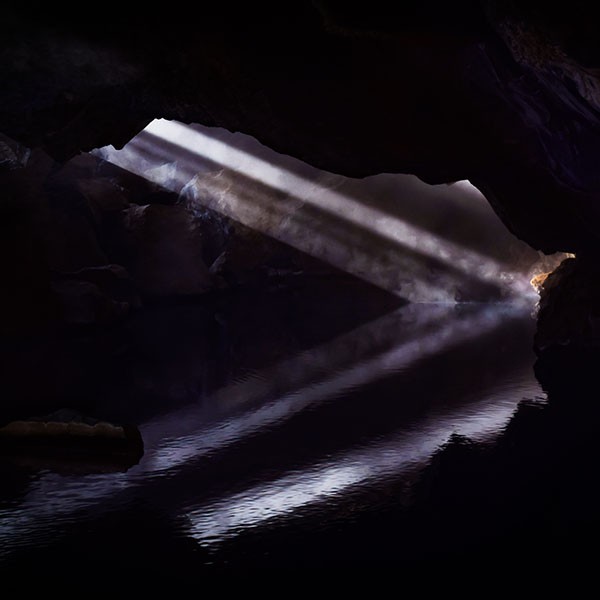Field Guide to the Underworld

…the descent to the Underworld is easy
—Virgil, The Aeneid
Borage and hellebore fill two scenes,
Sovereign plants to purge the veins
Of melancholy, and cheer the heart
Of those black fumes which make it smart.
—Robert Burton, Anatomy of Melancholy
I.
By now you have seen
nothing grows as it should
under glaciated skies
that trap light and heat
like a canyon floor.
Do not gaze at celestial lanterns
to illuminate your way
through the air’s lingering sulfur.
Here the moon is always waning.
Its jade glow looms over gnarled branches
and hills where asphodels sag
from slicing rain.
Do not search for a trail, map, or compass
since you traveled at the velocity of darkness
when ordinary time is lost.
Do not speak to anyone.
They cannot hear you
through the gnat vortices
of thoughts.
There are sojourners who contemplate
the mysteries of love undone or plucked before ripe.
Several of these visitors stand motionless
in an open field
held in the terrible gravity of grief.
Some stay and go as morning glories open and close.
They are those whose child has died
for which, as it has been noted, there is not a word
in our language to classify such loss.
Many inhabit by instinct
after injuries or surgeries
for a long convalescence,
as wounded trees leak traumatine
and soil is aerated after a harvest.
Some are culled by winter’s shocks,
withdrawing from the sun,
burrowing like seeds
into cavernous rooms; where earth walls
protrude snipped roots like severed tentacles
seeking the salve of night.
Do not be startled by the sight of teenagers
lying in beds of stinging nettles,
vines of their veins blackened by melancholy,
squirming in and out of sleep.
Elders murmur above sloughs
no words but moans unfurl from bud-tight throats
as they await death.
Soldiers and medics kneel in the mud of marshes, on mats of
water hyssop (Bacopa monnieri, common name: herb of grace).
Their uniforms are streaked with blood and dark dirt,
and when they long for Lethe, they drink what mimics it;
anything to soothe and forget the unspeakable.
II.
Beyond a grove of cedars
are rows of pomegranates that flank a meadow
of white daffodils (Narcissus poeticus, common name: poet’s daffodil).
This is Persephone’s garden.
And if you ask for her company
she will join you with her grey robe that coruscates like frost,
and eyes prismatic like ice in the sunlight.
She can divine the past pangs that wrought you here.
And if you weep, purples crocuses will chant in saffron-sweet breath:
“Sadness rises, tears drip, sadness falls.”
As Persephone once told me:
“Do not worry about your path
nor doubt your strength,
for all nature instructs us in patience.”
III.
When fast winds brush off the clouds
watch the horizon for a mountainous peak.
It will point you north,
away from Acheron’s fumes
toward a beechen forest
with jagged slopes of exposed limestone.
Climb the tallest foothill
but be careful of rocks sharp as yucca spine tips
and thickets of creeping ivy.
Across the plain
there is a cluster of borage (Trientalis borealis, common name: starflower).
Note its whorled leaves,
and five blue petals.
Note its stem juice can be a tonic
to calm aches and cleanse the blood.
There are other purgative plants
like liverwort, bloodwort and milk thistle*
and the genus helleborus with its many species
such as the Lenten rose.
*Note that all are poisonous in high dosage
as in the ways of pleasure.
But rest and reprieve cannot fully restore you.
Look for the golden bough
named hope.
Let it root within you
in the trust that is faith,
even if it seems useless as a trampled clover—
or dangerous
as a dog head of Cerberus
or a chimera’s tail.
It is said to abandon hope
is to enter through the gate
of the city of Dis.
But this is not truest Hell—
that kingdom of rot and wrath
and you are not dead, mind you,
merely changing.
IV.
When visions of a thriving version of self
quicken in the understory of your body
like a resurrection lily
you will see a clearing
guarded by ironwood trees
leading to a gap in a mound
where you will emerge
and breathe in a gasp
like your first breath.

